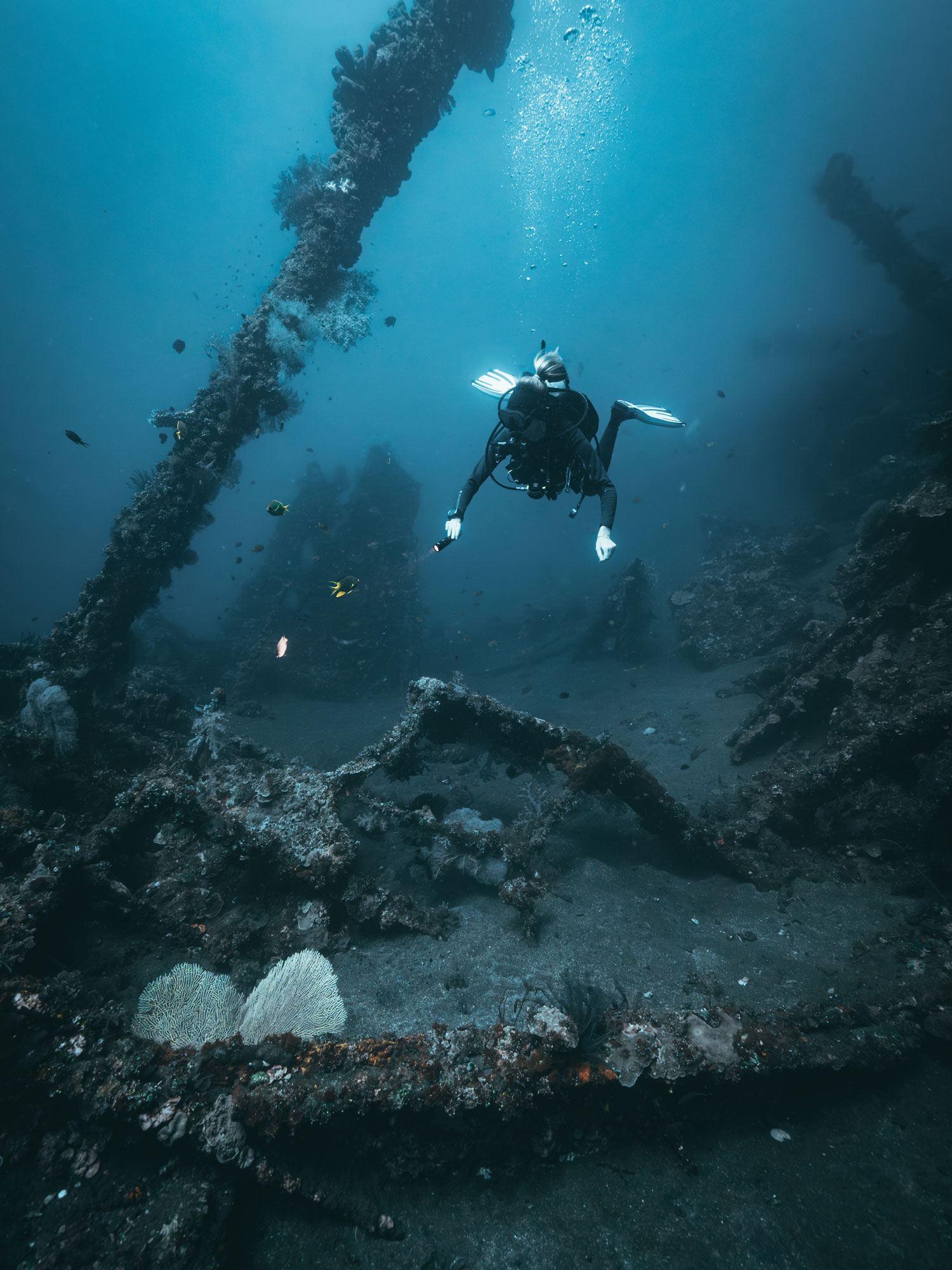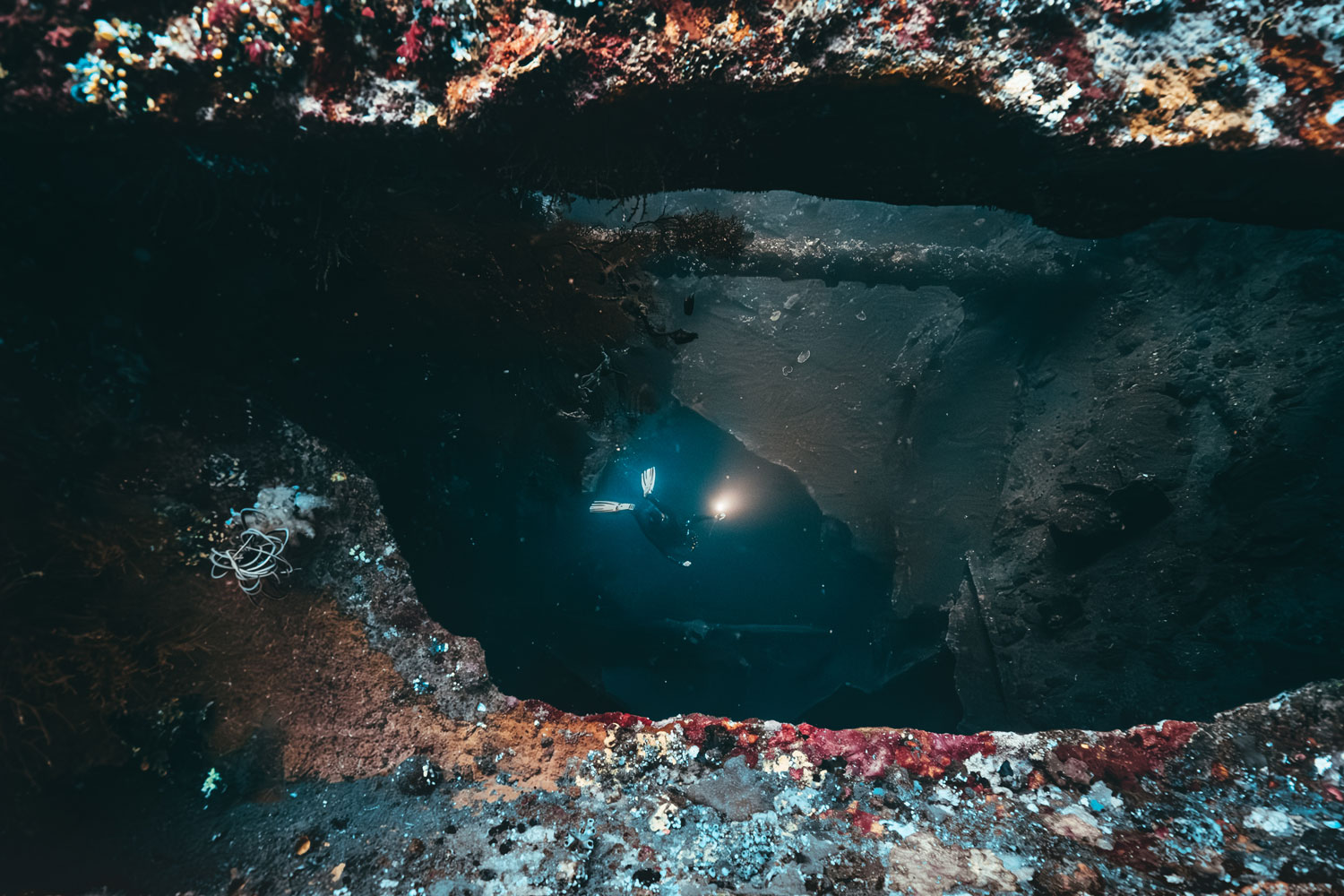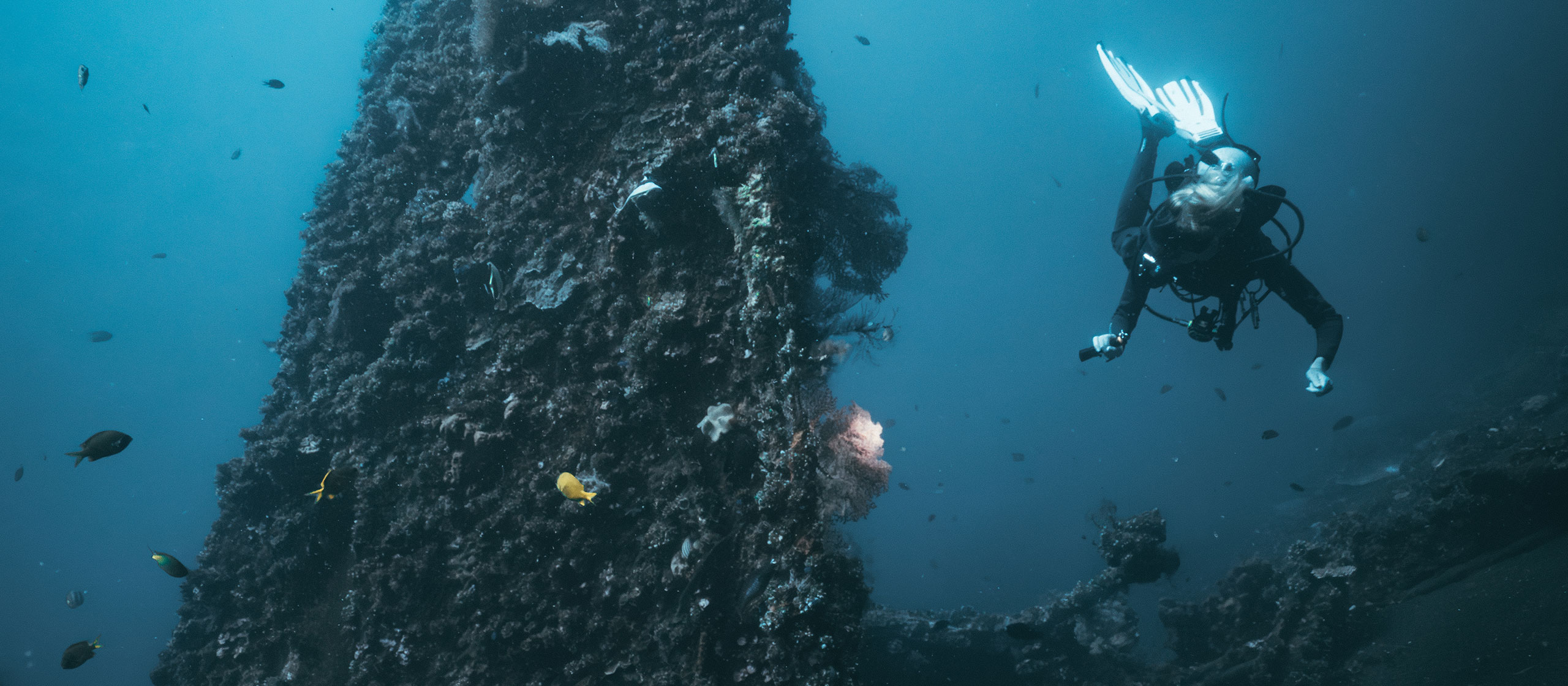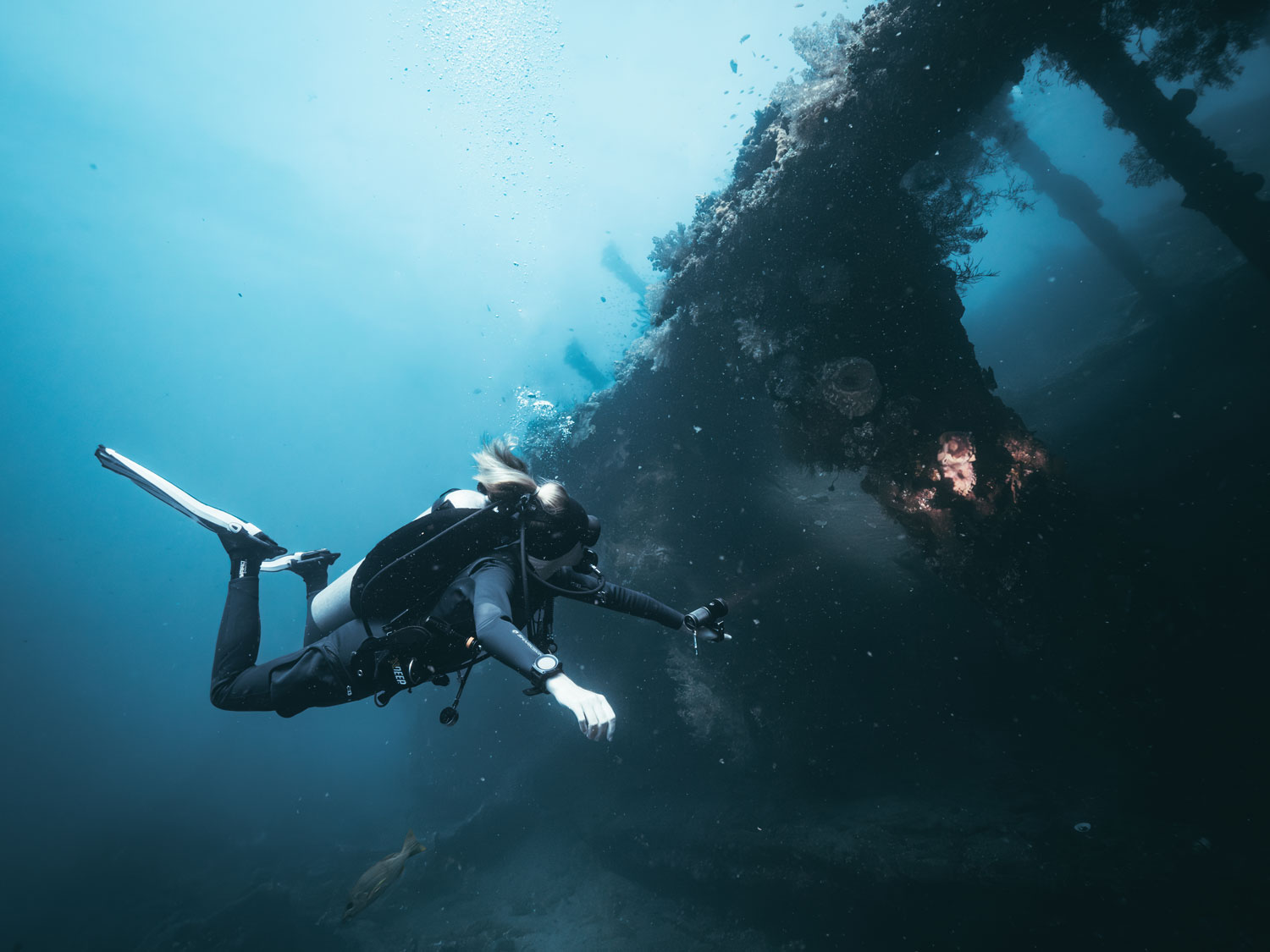The Top 50 Cult Dive Spots
Cult Dive: the USAT Liberty
Location: Bali, Indonesia.
GPS: 8° 16′ 28.80” S – 115° 35’ 34.77” E
Type of dive: wreck
Access: beach
Level: beginners – experts
THE SETTING
Tulamben’s beach, on the North-Eastern side of the island of Bali, is a long stretch of black sand and pebbles of volcanic origin. Looming over the resorts and the lawns at the edge of the water, is the Agung volcano, one of the creators of the most famous dive of the island. This giant of over 3000 meters is responsible for the gorgeous black sand on the seabed, where fish and nudibranchs become fluorescent by contrast, but also for the final sinking of the USAT Liberty. The Liberty sunk in two stages. In January 1942, it was torpedoed by a Japanese submarine in the Lombok Strait. It was towed to the beach of Tulamben, where the crew was rescued and the cargo recovered. In 1963, the earthquake triggered by the eruption of the Agung volcano, caused the ship to slide underwater to a depth between 9 and 35 meters.
WHAT TO SEE AND WHEN
The Liberty is a wreck that can be dived all year round. The visibility goes from a minimum of 10 to a maximum of 25 meters. During the rainy periods, from November until March, it can drop towards the minimum levels. The water temperature is always mild, and is between 23° and 28° degrees.
Already from shore, the black sand seabed offers countless images and visual cues: nudibranchs and other multicolored mollusks, gobies, boxfishes, and sea stars.
Just a little over 30 meters from the beach, between 6 and 10 meters of depth, lies the highest part of the wreck. The hull, 120 meters long, is tilted on a side, parallel to the shore.
The wreck is not interesting as such: the entire cargo was recovered, and both the US Navy and the locals had started to strip the wreck of its metal parts when half of it was still out of the water.
What makes it unique is without a doubt the marine life that has developed all around. On the metal beams, soft corals, some of them of striking dimensions, have grown thick; their colors varying from white to pink to lilac. The sections of the upper bridge that have remained intact have provided an effective vertical support to a great variety of sponges and small sea fans. The side of the hull that looks to the surface has less concretions, but is a meeting place for clouds of fusiliers, jackfish, barracudas, amberjacks, and sometimes mola-molas. All around the wreck, it is easy to spot schools of parrotfishes (Bolbometopon muricatum) and batfshes, but also solitary fish such as frogfishes, pigmy suckerfishes, ghost pipefishes, groupers.

THE BRIEFING
The entry and exit points for this dive are on the shore. On the long beach, local women offer to carry your equipment to the nearest entry point, which is in front of a small Balinese temple. Don’t get embarrassed to accept the services of the ‘female porters’: they charge Swiss fees.
The wreck is always quite busy, it is better to dive it so as to avoid possible crowds. Most divers, as usual, prefer the inside of the wreck, which is the deepest part, and where it is easy to get stuck (strange behavior, right?). Diving the outside will give you greater satisfaction, since the Liberty does not allow for a lengthy navigation on the inside. It does offer a few very picturesque tricks of light and panoramic views when looking to the outside from the larger openings.
The five meter safety stop is what could make this dive unforgettable. At that depth, on top of the wreck, clouds of fish often gather.
| BEWARE |
|---|
| Currents, weather, and sea conditions can catch you off guard. The greatest danger in this wreck is the risk of becoming entangled. There are some places where it is very easy to get stuck. |

LOGISTICS AND CONNECTIONS
Access: beach
Guide: not required. Dozens of well-equipped dive centers operate in Kuta, Denpasar, Tulamben etc.
Airport: Denpasar – DPS
Photos by Maxime Cheminade, DAN Europe Ambassador.


